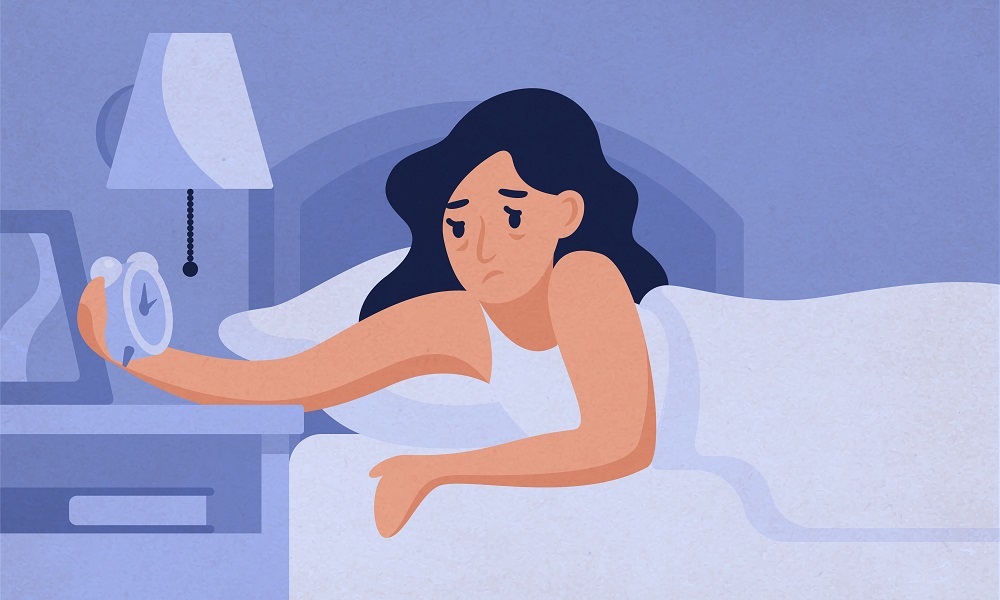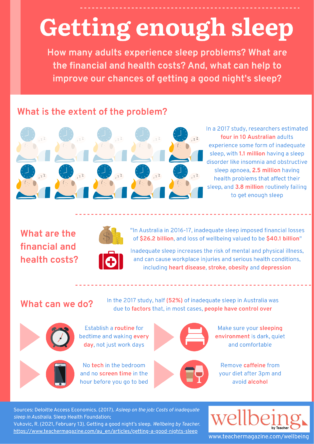‘Fatigue is both a physical and mental challenge.’ Dr Natasha Yates from Bond University shares the differences between tiredness and fatigue, their impact on our wellbeing, and when to seek professional help.
It’s not uncommon to go through periods of tiredness when you have been feeling unwell or have gone through an unusually busy period in life. But how do we know if we’re just feeling tired, or if we might be suffering from fatigue? And, what impact can tiredness and fatigue have on our overall health and wellbeing?
Dr Natasha Yates is a General Practitioner (GP) and Assistant Professor of General Practice at Bond University in Queensland. In this Q&A for Wellbeing by Teacher, she unpacks the differences between tiredness and fatigue, and outlines when it is important to seek professional help.
What is the difference between tiredness and fatigue?
These words are often used interchangeably, and there is not really a problem with doing that. But, as a GP, I need to be clear on what someone means when they talk about being tired or fatigued. So I distinguish them as follows: tiredness can often be helped by getting sufficient, high-quality sleep.
Fatigue is not helped by sleeping. In fact, fatigued patients sleep very deeply, for many more hours than usual, but they are still exhausted all the time.
How can fatigue impact our overall wellbeing?
Fatigue is both a physical and mental challenge. Apart from not being able to function at our usual capacity, we have to mentally adjust to this and plan around it. Then there is the uncertainty of how long it is going to last and worries about whether there may be a reversible or serious underlying cause. This can lead to anxiety and/or depression, which can cause symptoms of their own.
What can cause tiredness and fatigue?
Tiredness is commonly seen when people are recovering from an illness or a busy period in their lives. By slowing down for a bit, and doing sensible things to improve their sleep quality, they start to improve. For example, cutting back on alcohol and caffeine, getting to bed at the same time each night, and avoiding screens for an hour before bedtime. There are other medical causes of tiredness which should be looked for if these simple approaches don’t make a difference, for example, low iron or thyroid disease. Sleep apnoea (where breathing is obstructed during sleep) is another very common cause.
There are many potential causes of fatigue. Even before the pandemic, fatigue was one of the most common reasons people saw a GP. Nowadays I am seeing a lot of post-COVID fatigue, and it’s looking similar to chronic fatigue syndrome (CFS), because along with the extreme exhaustion, people experience things like brain-fog, muscle aches, breathlessness and anxiety/depression.
There are lots of other possible causes of fatigue besides post-viral, however, so it’s important not to assume that is the reason without getting checked out. Many serious causes of fatigue can be ruled out when your GP asks about your symptoms, examines you and investigates further if they think that is needed.
When experiencing fatigue, at what point is it important to see a doctor?
The question to ask yourself is: ‘how is this impacting on my life?’. If it is causing you constant frustration or distress, then it’s time to see a doctor. It is also vital you see a GP sooner rather than later if you are experiencing other new symptoms that started along with the fatigue and are concerning you.
What are some strategies for managing tiredness amongst the chaos of day-to-day life?
The absolute number one strategy is to prioritise sleep. There are some good resources around to help with sleep hygiene. One of my favourite resources is the Centre for Clinical Intervention’s Sleep Hygiene information sheet. After that, strategies will depend on what else you can clean up in your lifestyle, for example, exercising, eating a healthy diet, and reducing screen use.
Anything else you’d like to add?
Assuming most readers here are teachers, I’d like to encourage you to be proud of what we have achieved as a profession over these past few years. Being tired is a normal response to pushing ourselves hard. No one would argue with the fact all of us have been hugely stretched as teachers since COVID-19 hit. Even those who are not teachers will have been forced to learn, change and adapt more than ever before, and that is exhausting. Be kind to yourself and to others and give yourself time and space to recover in whatever ways you are able to.





